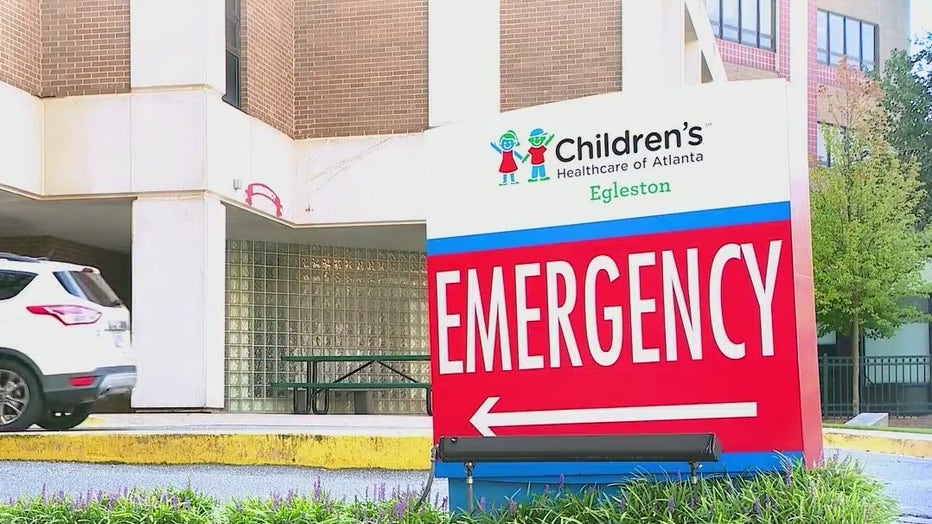As Americans return to work, school after holiday break, COVID-19 hospitalizations rise

COVID-19, flu, RSV expected to circulate
Urgent Care facilities and emergency departments are seeing a lot of new patients coming in with respiratory symptoms. It's a viral "soup" of seasonal flue, colds, RSV and COVID-19 infections. Here's what you should do if you feel yourself getting sick.
ATLANTA - As the holiday travel season winds down, and people head back to work and school, COVID-19 infections continue to rise.
As of December 23. 2021, the latest Centers for Disease Control and Prevention estimate, 29,059 Americans were hospitalized with COVID-19, with infants and adults over 75 being hit the hardest.
Dr. Felipe Lobelo, who is a physician and epidemiologist with Kaiser Permanente Georgia, says U.S. hospitals are beginning to feel the impact of a combination of COVID-19, seasonal flu, and RSV.
"We're right on that border of things starting to become a stress on the health care systems," Dr. Lobelo says. "All the health care systems are thinking right now, ‘Do we need to bring back masks, for example, for our physicians and our health care providers to protect themselves and also to protect others?’"
A new highly contagious COVID-19 variant, JN.1, is driving about 44% of new U.S. infections, according to the CDC.
The agency says JN.1 does not appear to be more severe than other circulating or past strains of the virus, and the symptoms have stayed pretty consistent.
The most common symptoms include fever or chills, coughing, shortness of breath or difficulty breathing, fatigue and muscle or body aches.
Some people may experience headache, a new loss of taste or smell, a sore throat, congestion or a runny nose.
Nausea or vomiting and diarrhea are also symptoms of COVID-19.
The only way to know if you have a COVID-19 infection is to take a test, either an at-home rapid test or a PCR test available from a health care provider.

Childrens Healthcare of Atlanta has since a significant rise in patients during the COVID-19 pandemic. (FOX 5)
If you test positive for the virus, the CDC recommends you stay home and isolate yourself from others in your home for at least 5 days.
People at increased risk of severe complications of COVID-19 may qualify for Paxlovid or Molnupiravir, two antiviral therapies that can reduce the risk of hospitalization and death.
Both need to be started within 5 days of the onset of symptoms.
"With testing, we can sort of pinpoint the right treatment, if it's necessary for particular individuals that may need it," Dr. Lobelo says. "You want to start that early as possible."
The CDC is urging Americans ages 6 months and older to get an updated 2023-2024 COVID-19 vaccine.
But only about 18% of U.S. adults and 38% of seniors 75 and older have gotten the shot since it was recommended in September 2023.
Dr. Lobelo says most Americans have some level of immunity to the coronavirus, either from prior infections or previous vaccinations.
Still, he cautions that protection wanes with time.
"Really, after 4, 5, 6 months, your levels of protection start to drop off," Lobelo says.
So, he says, if it has been a couple of months since you have had COVID-19, or you haven't gotten an updated shot, get vaccinated soon.
"I strongly recommend it because the activity just keeps increasing," Dr. Lobelo says.

